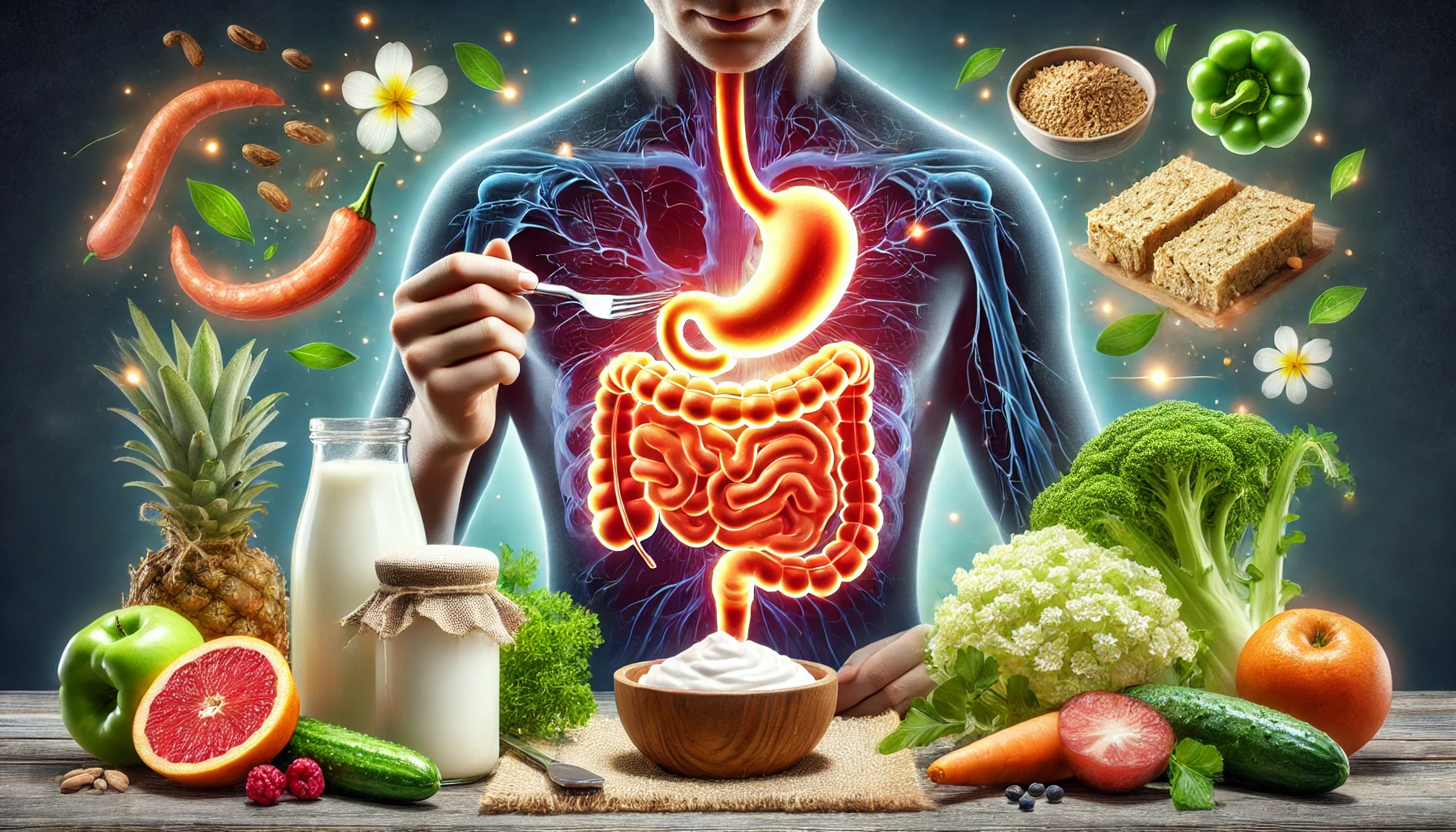Good digestion is essential for overall health, as it affects nutrient absorption, energy levels, and even mental well-being. Poor digestion can lead to bloating, discomfort, and other digestive issues. Fortunately, adopting simple daily habits can significantly improve digestive health. In this article, we’ll explore practical tips to keep your digestive system functioning smoothly.
Why Good Digestion Matters
The digestive system breaks down food, absorbs essential nutrients, and eliminates waste. When digestion is compromised, the body struggles to get the nutrients it needs, leading to issues like:
- Bloating and gas
- Constipation or diarrhea
- Acid reflux
- Fatigue and sluggishness
- Weakened immune function
By making small lifestyle changes, you can support a healthier digestive process.
Simple Habits to Improve Digestion
1. Eat Slowly and Chew Your Food Well
Digestion starts in the mouth. Chewing food thoroughly helps break it down into smaller particles, making it easier for your stomach to process. Eating slowly also prevents overeating and reduces bloating.
2. Stay Hydrated
Water is essential for smooth digestion, as it helps break down food and move it through the intestines. Aim to drink at least 8 cups (2 liters) of water daily, and consume water-rich foods like cucumbers, watermelon, and oranges.
3. Increase Fiber Intake
Fiber promotes regular bowel movements and prevents constipation. Include both soluble and insoluble fiber in your diet:
- Soluble fiber (oats, beans, apples) helps absorb water and slow digestion.
- Insoluble fiber (whole grains, vegetables, nuts) adds bulk to stool and speeds up movement through the intestines.
4. Consume Probiotics and Fermented Foods
Probiotics are beneficial bacteria that support gut health. Foods rich in probiotics include:
- Yogurt
- Kefir
- Kimchi
- Sauerkraut
- Miso
These foods help balance gut flora and improve digestion.
5. Manage Stress Levels
Stress affects digestion by disrupting gut bacteria and increasing stomach acid production. Try relaxation techniques such as deep breathing, meditation, or yoga to reduce stress and support healthy digestion.
6. Avoid Processed Foods and Excess Sugar
Highly processed foods and excessive sugar can contribute to inflammation and disrupt gut bacteria balance. Instead, focus on whole, natural foods that nourish your digestive system.
7. Get Regular Exercise
Physical activity stimulates digestion by increasing blood flow to the intestines and promoting regular bowel movements. Even a short walk after meals can aid digestion and reduce bloating.
8. Establish a Regular Eating Schedule
Eating meals at consistent times helps regulate digestion. Avoid skipping meals or eating too late at night, as irregular eating patterns can cause digestive discomfort.
9. Limit Alcohol and Caffeine
Excessive alcohol and caffeine can irritate the digestive tract and cause acid reflux or bloating. Moderation is key to maintaining digestive balance.
10. Get Enough Sleep
Poor sleep can negatively impact digestion and metabolism. Aim for 7–9 hours of quality sleep each night to support overall health and digestion.
Better Digestion, Better Health
Improving digestion doesn’t require drastic changes—small, consistent habits can make a big difference. By eating mindfully, staying hydrated, and supporting gut health with fiber and probiotics, you can enhance your digestive function and feel better overall.
Start incorporating these habits today, and your digestive system will thank you!
